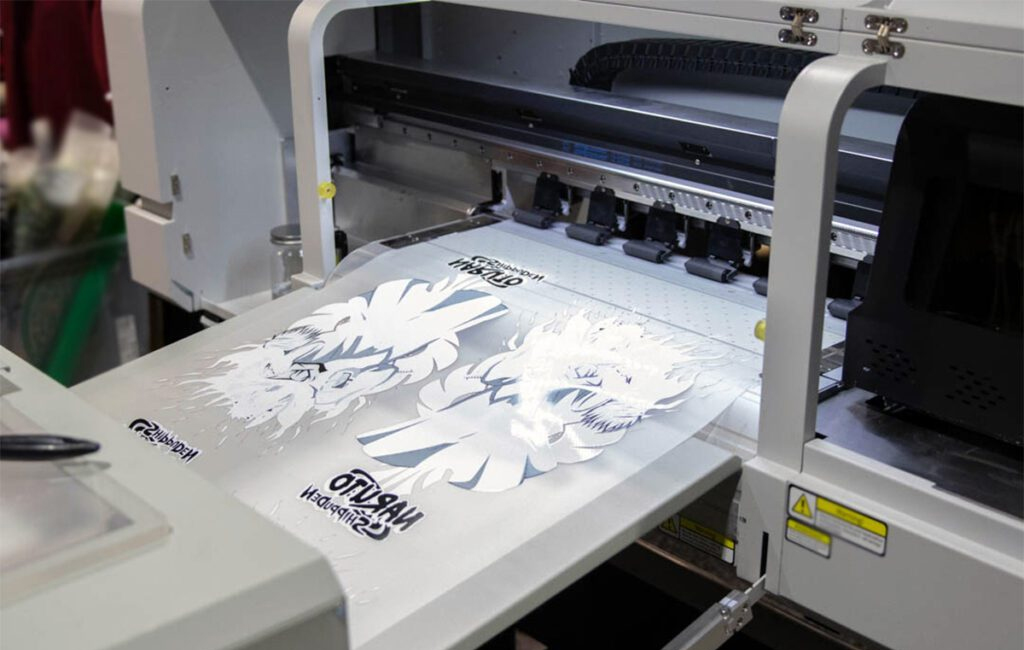
Direct-to-Film (DTF) printing has become a game-changer for small businesses in 2025. Its affordability and adaptability empower entrepreneurs to create custom apparel without large investments. I’ve noticed this technology’s ability to print on diverse fabrics, opening doors for branded merchandise and promotional items. With the DTF ink market projected to reach $2,152 million by 2025, its popularity continues to grow. Small businesses benefit from no minimum order requirements and low-risk design testing, making it ideal for startups. If you’re wondering what is the best DTF printer for small business needs, this guide will help you explore the top options and find the best DTF printer for your requirements.
Key Takeaways
- DTF printing is cheap and flexible, perfect for small businesses. It helps make custom clothes without spending too much money upfront.
- Picking the best DTF printer means checking print quality, speed, and what materials it works with to fit your business needs.
- Taking care of your DTF printer and testing it often keeps it working well. This helps make great prints, which keeps customers happy.
Why Choose a DTF Printer for Your Small Business?Benefits of DTF Printing
DTF printing offers several advantages that make it a valuable asset for small businesses. It reduces production expenses by eliminating the need for screen preparation, saving both time and money. Additionally, it minimizes waste and uses ink more efficiently than traditional methods. For custom and small-batch orders, DTF significantly lowers setup costs, making it an ideal choice for startups or businesses with limited budgets.
Another key benefit is its versatility. DTF printers can handle a wide range of fabrics and materials, allowing businesses to expand their product offerings. Whether you’re printing on cotton, polyester, or blends, DTF ensures vibrant colors and high-quality results. Its durability also stands out, as prints are resistant to washing and wear, ensuring customer satisfaction.
Comparison with Other Printing Methods
When compared to traditional printing methods, DTF printing excels in several areas. It captures intricate details and vibrant colors more effectively, making it perfect for complex designs. High-resolution images with fine lines and gradients are easily achievable, which may be challenging for other methods. DTF also provides better durability, with prints that maintain their quality over time.
From a cost perspective, DTF printing is more efficient. It requires less upfront investment in equipment and materials, making it accessible for small businesses. The process is user-friendly and faster, enabling quicker turnaround times. Additionally, its environmental impact is lower, as it uses materials more efficiently and generates less waste.
Ideal Applications for Small Businesses
DTF printers are versatile tools that cater to various small business needs. For example, the DPU24-4 model is ideal for creating custom gifts and merchandise, offering high-quality and durable outputs. The UV DPU24-3 excels in printing on versatile materials like mugs, hats, and phone cases, delivering vibrant results with fast turnaround times. For businesses focused on apparel, the DPU18-4 is perfect for custom t-shirts, bags, and promotional items, providing an affordable entry point with compact design.
The DPU24-4 Bundle with Dryer streamlines production for scaling operations, reducing manual labor while maintaining consistent quality. Additionally, heat press machines like the ADH2022 Air Operation Heat Press ensure high-quality transfers to garments, making them essential for apparel-focused businesses. These applications demonstrate how DTF printers can meet diverse business needs effectively.
How to Choose the Right DTF Printer
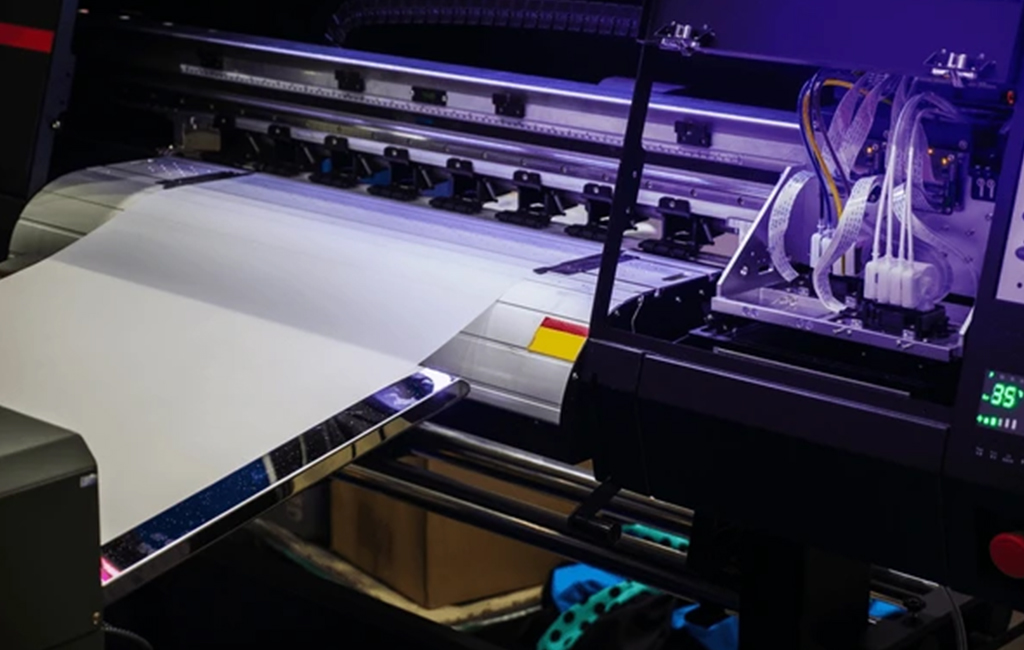
Key Features to Look For
Selecting the right DTF printer begins with understanding the features that matter most for your business. High-resolution printing, at least 1440 DPI, ensures sharp and detailed designs, which are essential for intricate artwork. Printing speed plays a crucial role in meeting production demands, especially for growing businesses. Material compatibility is another key factor. A versatile printer capable of handling cotton, polyester, and blends allows you to diversify your product offerings.
Ease of maintenance should not be overlooked. A printer designed for simple upkeep reduces downtime and extends its lifespan. Balancing cost with features is vital. While high-end machines offer advanced capabilities, they may exceed the budget of startups.
| Feature | Description |
|---|---|
| Printing Quality | High resolution ensures detailed and sharp prints, essential for fine artwork. |
| Printing Speed | Choose based on production volume to meet business needs. |
| Material Compatibility | Ability to print on various fabrics expands business opportunities. |
| Ease of Maintenance | Reduces downtime and prolongs the printer’s lifespan. |
| Cost | Balance between budget and features; high-end machines offer more but at a higher price. |
Budget Considerations
Starting a DTF printing business requires careful budgeting. Printers range from $1,500 to $7,000, with additional costs for consumables like ink, film, and powder. Maintenance and training expenses also add to the total investment. For example, consumables such as 30cm*100m rolls of film cost between $19 and $27, while white ink ranges from $13 to $25 per kilogram.
| Equipment | Cost Range |
|---|---|
| DTF Printer | $2415 – $2750 |
| Powder Machine | $150 – $575 |
| Heat Press Machine | $215 – $550 |
| Total Equipment Cost | $2780 – $3875 |
| Daily Maintenance | $10 – $70 |
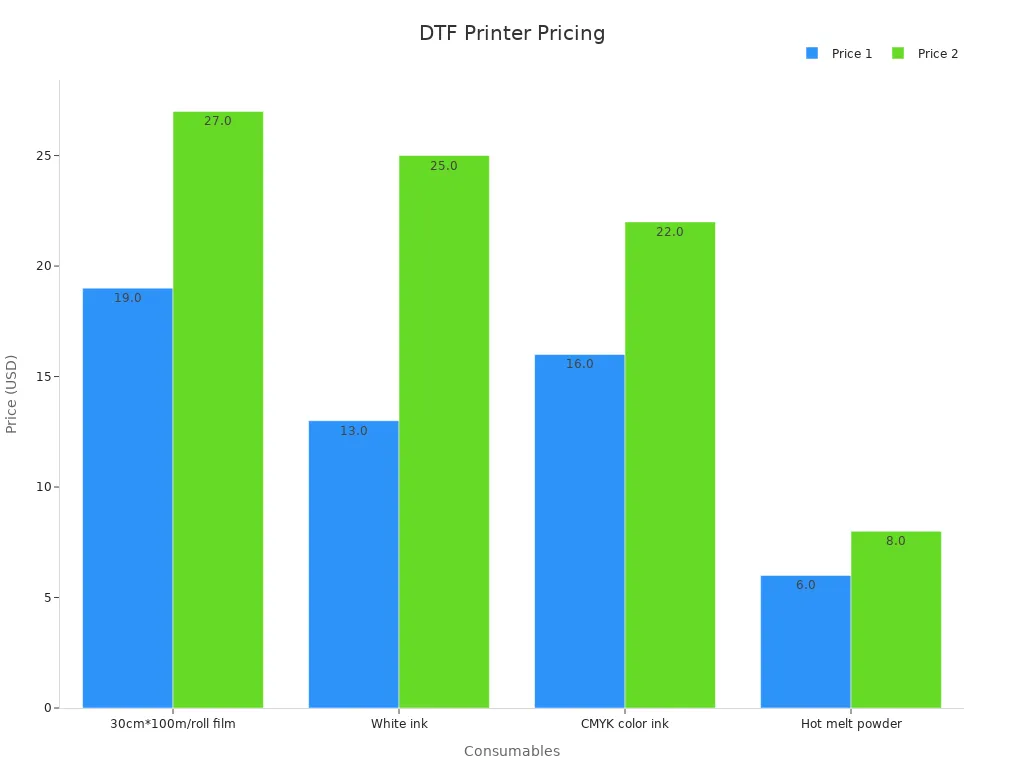
Evaluating Printer Size and Speed
Printer size and speed directly impact efficiency. Entry-level models with one or two print heads offer speeds of 4–8 m²/h, ideal for startups. Mid-range printers with two to three heads can achieve 8–15 m²/h, suitable for growing businesses. Commercial-grade printers with four or more heads deliver speeds of 15–25+ m²/h, making them perfect for bulk production.
| Printer Type | Avg Speed (m²/h) | Use Case |
|---|---|---|
| Entry-Level (1–2 Heads) | 4–8 m²/h | Small businesses & startups |
| Mid-Range (2–3 Heads) | 8–15 m²/h | Growing online stores |
| Commercial (4+ Heads) | 15–25+ m²/h | Bulk production & B2B orders |
Importance of Customer Support and Warranty
Reliable customer support and warranty coverage ensure peace of mind. Many printers offer warranties ranging from three months to a year, with exclusions for components like printheads. Reading user reviews helps identify models with consistent after-sales service. I recommend comparing experiences across different brands to find the best fit for your needs.
Tip: Always request samples printed on your preferred fabrics and review testing documentation to ensure quality and durability.
20 Best DTF Printers for Small Businesses in 2025
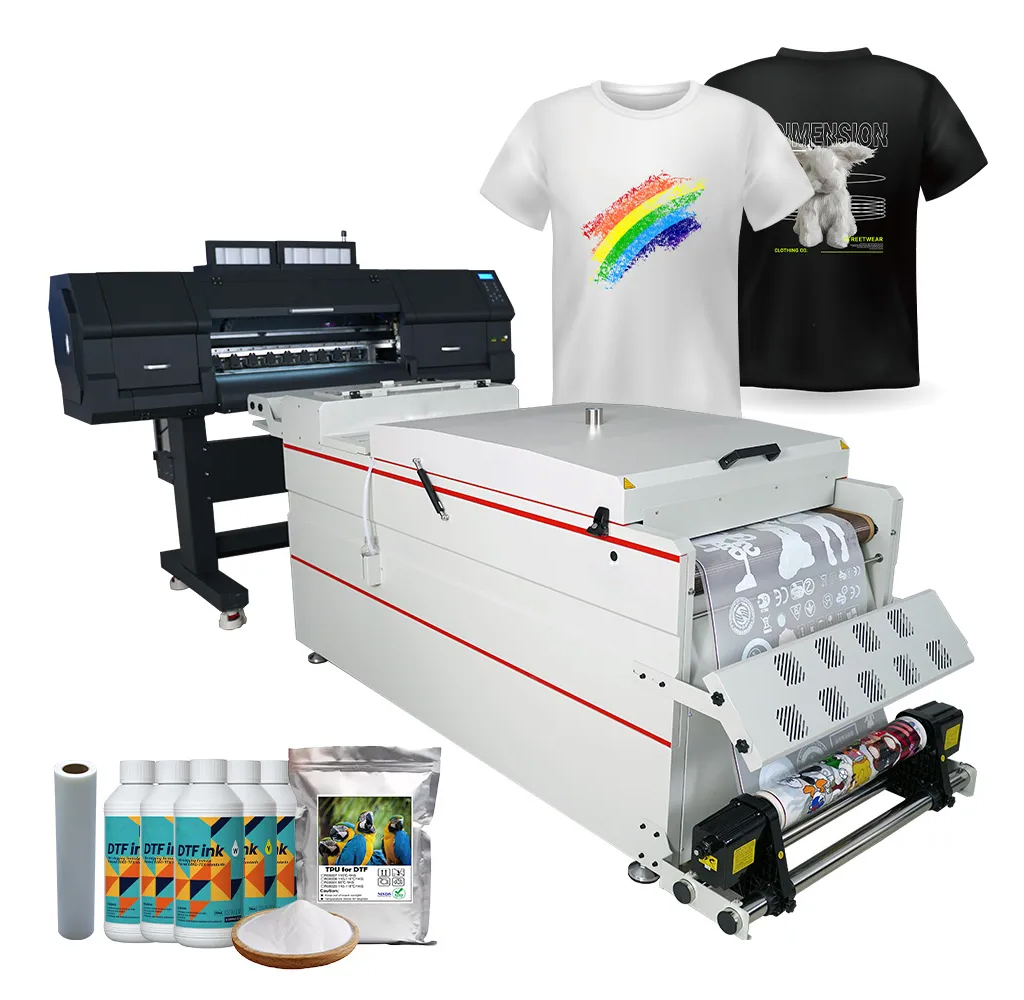
Epson SureColor F2100
The Epson SureColor F2100 stands out as one of the best DTF printers for small business owners. Its advanced PrecisionCore technology delivers high-resolution prints, ensuring vibrant colors and sharp details. With a print speed of up to 15 t-shirts per hour, it’s ideal for businesses looking to scale production without compromising quality. The printer supports various fabric types, including cotton and polyester blends, making it versatile for custom apparel. Its intuitive interface simplifies operation, while Epson’s reliable customer support ensures smooth maintenance.
Brother GTX Pro
The Brother GTX Pro offers exceptional performance for small businesses focused on apparel printing. Its high-speed capabilities allow printing up to 20 t-shirts per hour, making it a great choice for growing operations. The printer’s eco-friendly ink system reduces waste and ensures durability, with prints lasting through 50+ washes. Its compact design fits well in small spaces, and the user-friendly software streamlines workflow. For those seeking the best dtf printer for small business needs, the GTX Pro delivers both efficiency and reliability.
Mimaki TS100-1600
The Mimaki TS100-1600 excels in producing high-quality prints for promotional items and apparel. Its 1600mm print width accommodates larger designs, making it suitable for banners and oversized garments. The printer’s sublimation capabilities ensure vibrant colors and long-lasting results. Mimaki’s proprietary RasterLink software enhances productivity by simplifying design adjustments. With a competitive price point, this model is a smart investment for businesses aiming to expand their product offerings.
Roland VersaSTUDIO BN-20
The Roland VersaSTUDIO BN-20 combines versatility and affordability, making it a top choice for startups. Its compact size fits easily into home offices or small studios, while its ability to print on various materials, including vinyl and fabric, opens up diverse business opportunities. The BN-20’s Eco-Sol MAX inks produce vibrant, durable prints that resist fading. Its intuitive software allows easy customization, making it perfect for creating unique designs.
Ricoh Ri 1000
The Ricoh Ri 1000 offers a seamless blend of speed and quality, making it one of the best dtf printers for small business owners. Its advanced inkjet technology ensures precise color reproduction, while the automatic maintenance system reduces downtime. The printer supports a wide range of fabrics, including cotton, polyester, and blends, enabling businesses to cater to diverse customer needs. With a print speed of up to 28 t-shirts per hour, the Ri 1000 is ideal for high-demand operations.
HP Stitch S500
The HP Stitch S500 is a powerhouse for businesses requiring high-volume production. Its dye-sublimation technology delivers vibrant, fade-resistant prints, perfect for apparel and promotional items. The printer’s 64-inch width accommodates large-scale designs, while its automated maintenance system ensures consistent performance. HP’s SmartColor technology simplifies color management, making it easier to achieve accurate results. For businesses seeking scalability, the Stitch S500 is a reliable choice.
Mutoh VJ-628D
The Mutoh VJ-628D offers exceptional versatility for small businesses. Its compact design fits well in limited spaces, while its ability to print on various materials, including fabric and vinyl, expands product possibilities. The printer’s high-resolution output ensures sharp details and vibrant colors, making it ideal for custom apparel and promotional items. Mutoh’s Intelligent Interweaving technology reduces banding, ensuring smooth prints every time.
The Colorido is a premium option for businesses prioritizing quality and efficiency. Its industrial-grade capabilities allow printing on a wide range of fabrics, including dark materials, without pre-treatment. The printer’s eco-friendly ink system minimizes waste and ensures durability, with prints lasting through multiple washes. Colorido’s advanced software streamlines workflow, making it easier to manage high-volume production.
LINKO K-60
The LINKO K-60 is a budget-friendly option that doesn’t compromise on performance. With a print resolution of 1440 DPI, it delivers sharp and vibrant designs suitable for custom apparel. The printer’s speed of 14.29 t-shirts per hour makes it ideal for small businesses looking to scale operations. Its compact design fits well in limited spaces, while the 24/7 helpline ensures reliable customer support.
LINKO L-A3
The LINKO L-A3 is perfect for startups seeking an affordable entry point into DTF printing. Its 1440 DPI resolution ensures high-quality prints, while the speed of 7.14 t-shirts per hour caters to smaller production volumes. The printer’s one-on-one training program simplifies setup and operation, making it accessible for beginners. Its compact size and versatile capabilities make it a valuable addition to any small business.
Tip: Regular maintenance, such as cleaning printheads and using high-quality inks, ensures consistent performance and prolongs the lifespan of your DTF printer.
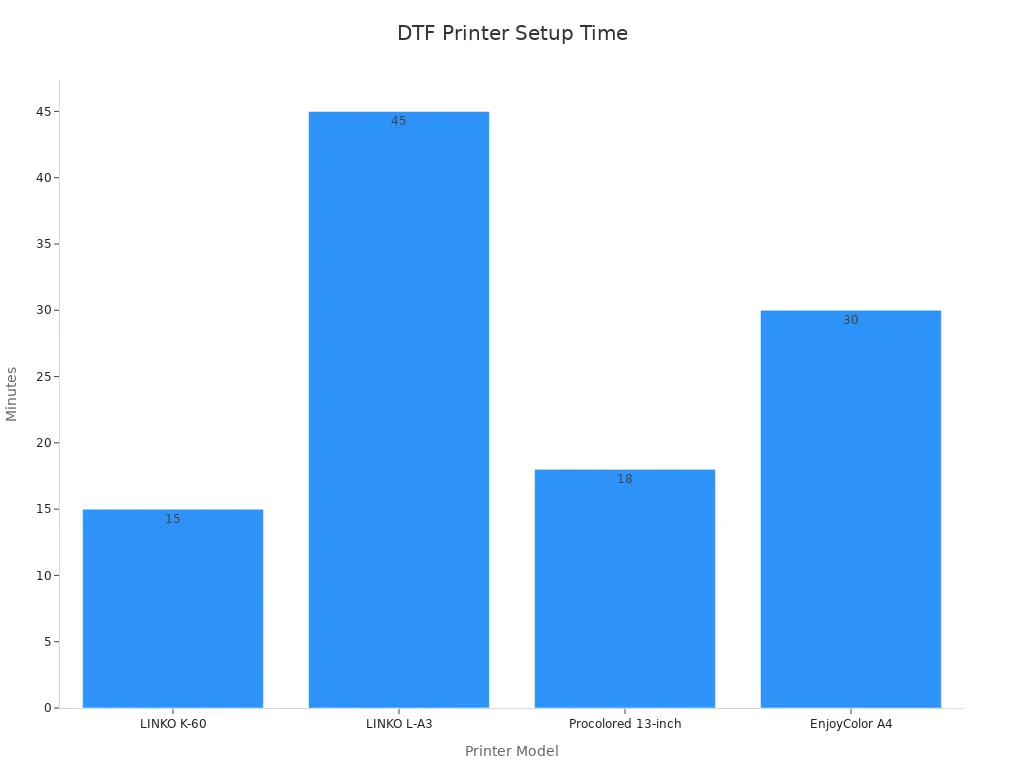
Final Tips Before You Buy
Assess Your Business Needs
Choosing the right DTF printer starts with understanding your specific business requirements. Evaluate the space available for the printer. Compact models work well for small studios or home offices, while larger printers suit businesses with higher production demands. Consider the printer’s portability if you plan to move it frequently.
“The right DTF printer should offer a balance between robust functionality and the ease of transportation, ensuring that your business can adapt to changing demands without compromising on print quality.”
Additionally, assess your expected printing volume. High-speed printers are essential for meeting tight deadlines, while entry-level models suffice for smaller operations. Don’t overlook setup and maintenance needs. User-friendly interfaces and efficient installation processes ensure a smooth transition into DTF printing.
| Factor | Importance |
|---|---|
| Space Considerations | Assessing the printer’s footprint and necessary clearance prevents workflow disruptions. |
| Portability | A lightweight and compact design enhances mobility, crucial for businesses with limited space. |
| Setup and Maintenance | Efficient installation and user-friendly interfaces are essential for smooth transitions. |
| Printing Speed and Volume | High-speed printing capabilities are critical for meeting production demands. |
| Cost-Effectiveness | Evaluating initial investment against ongoing expenses is key for profitability. |
| Customer Support | Responsive support can significantly reduce downtime and enhance user satisfaction. |
Consider Long-Term Costs
Starting a DTF printing business involves more than just the initial investment. Beyond the printer cost, you’ll need to budget for consumables like ink, film, and adhesive powder. Routine maintenance and cleaning supplies also add to the monthly expenses. For instance, DTF inks range from $100 to $200 per liter, while adhesive powder costs $20 to $50 per kilogram.
| Cost Type | Cost Range |
|---|---|
| DTF Film | $1 to $3 per sheet |
| DTF Inks | $100 to $200 per liter |
| Adhesive Powder | $20 to $50 per kilogram |
| Cleaning Supplies | $10 to $30 per month |
| Routine Maintenance | $50 to $200 per month |
| Design Software | $20 to $50 per month |
| Training | $100 to $1500 |
Calculate the cost per print by summing material, labor, and overhead costs. Determine your break-even point and calculate ROI to ensure profitability. These steps help you decide if the investment in the best dtf printer for small business needs is worthwhile.
Research Customer Reviews
Customer reviews provide valuable insights into a printer’s performance and reliability. Look for feedback on print quality, durability, and ease of use. Reviews often highlight real-world experiences, including potential issues and how manufacturers handle them. Prioritize printers with consistent positive feedback and responsive customer support.
Test Before You Invest
Testing a printer before purchasing ensures it meets your expectations. Request sample prints on your preferred materials to evaluate quality and durability. Regular testing and calibration also maintain print consistency over time. Knowledgeable operators can troubleshoot and optimize settings effectively, ensuring smooth operations.
| Tip Category | Key Points |
|---|---|
| Proper Storage | Maintain temperature (15°C to 25°C), humidity (40%-60%), and a clean environment. |
| Recommended Settings | Use ICC profiles tailored for different printing speeds and consumables for optimal performance. |
| Training | Knowledgeable operators can troubleshoot and optimize settings effectively. |
| Testing & Calibration | Regular checks prevent minor issues from escalating and maintain print quality. |
| Software Updates | Regular updates enhance functionality and prevent potential issues. |
| Manufacturer Support | Utilize supplier resources for troubleshooting and training to ensure optimal printer performance. |
Tip: Always test printers under real-world conditions to ensure they meet your business needs.
DTF printing offers small businesses a cost-effective way to create high-quality, versatile products. Choosing the right printer ensures efficiency and aligns with specific business goals. I recommend exploring the options listed above to find the best fit for your needs.
Tip: Investing in the right DTF printer can transform your business and unlock new opportunities.
FAQ
What is the best DTF printer for startups?
I recommend the LINKO L-A3. It’s affordable, compact, and beginner-friendly, making it perfect for startups with limited budgets and smaller production needs.
How often should I maintain my DTF printer?
Daily maintenance is essential. Clean printheads and check ink levels regularly to ensure consistent performance and extend the printer’s lifespan.
Can DTF printers handle bulk orders?
Yes, commercial-grade models like the Kornit Breeze or HP Stitch S500 are designed for high-volume production, ensuring efficiency and quality for bulk orders.
Media Contact
Company Name: Ningbo Haishu Colorido Digital Technology Co., Ltd.
Email: Send Email
Phone: +86 13967852601
Country: China
Website: https://www.coloridoprinting.com/
